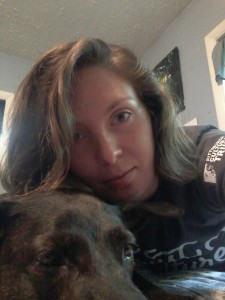Fiction, fiction, fiction. Check out the last of our fiction panels at this years Winter Wheat!
“Good Girl/Bad Girl: Creating Complexity in Female Characters,” with Bridget Adams
Have you ever begun reading a novel and known exactly what to expect from the female characters? Have you ever wondered why your own female characters seem static, cliché, unreal? It can be tempting to fit fiction women into archetypes—making them “good girls” or “bad girls.” In this workshop, we’ll look at the work of female writers, from Emily Bronte to Jeanette Winterson to Elena Ferrante, who center their stories on unruly, difficult, and complicated women. We’ll examine the techniques each writer uses to develop character, and spend time creating unforgettable female characters of our own.
Bridget Adams is currently a first-year student pursuing her MFA in creative writing at Bowling Green State University. Her work has appeared in The Susquehanna Review and OPUS magazine. She is a winner of SUNY Geneseo Awards in Fiction and Poetry.
(this workshop will be held on Saturday, November 5th from 9:30-10:45am. If you’re interested in attending this workshop, select C1 when you register!)
“Magic in the Making,” with Nathaniel Meals
This workshop begins with a general, if abbreviated, introduction to magical realism as a genre, its post-WWII Latin American origins, its rise in popularity, and its present place in world literature. From there, the focus will shift to a discussion of the typical features of a magical realist fiction. Using notable texts authored by some chief practitioners of the genre, we will explore how these devices are employed and to what aesthetic ends. Finally, the workshop will close with a few short writing exercises to get your magical juices flowing.
Nathaniel Meals is a first-year graduate student in creative writing at BGSU. He grew up in Pittsburgh, PA, and attended Duquesne University, where he studied English and philosophy.
(this workshop will be held on Saturday, November 5th from 9:30-10:45am. If you’re interested in attending this workshop, select C5 when you register!)
“Creating Your Fictional Hometown,” with Eric Wasserman
“Every good writer has a conflicted relationship with the place where he grew up.” Kevin Kline could not have spoken truer words in the movie Orange County. Do you struggle with wanting to write autobiographical fiction? Is where you grew up crucial to those stories, but you can’t seem to get beyond your personal history that rests there? In this writing-intensive workshop we will explore techniques that will help you create your own fictional hometown, similar enough to the real thing that you will not lose that special sense of place, but different enough to free yourself artistically.
Eric Wasserman is the author of a collection of short stories, The Temporary Life (University of Akron, 2005) and a novel, Celluloid Strangers (Second Wind, 2011). He is an Associate Professor of English at The University of Akron, where he teaches fiction writing, literature and film studies. You can visit him at www.ericwasserman.com.
(this workshop will be held on Saturday, November 5th from 11:00-12:15pm. If you’re interested in attending this workshop, select D6 when you register!)
“The Seven Deadly First-Page Sins,” with Tex Thompson
There’s no one right way to begin your story—but there are plenty of wrong ones. In this class, we’ll take you on a cautionary tour through the pits of page-one hell, complete with agent pet peeves, reader turn-offs, and “thanks but no thanks” editorial deal-breakers. Don’t let your manuscript suffer in form-rejection torment: Let us guide you through the slush-pile inferno and lead your story toward the light!
Arianne “Tex” Thompson is a “rural fantasy” author, professional speaker, and comma placement specialist. Look for her internationally published epic fantasy Western series, Children of the Drought (Solaris), and find her online at www.thetexfiles.com!
(this workshop will be held on Saturday, November 5th from 3:00-4:15pm. If you’re interested in attending this workshop, select F8 when you register!)

